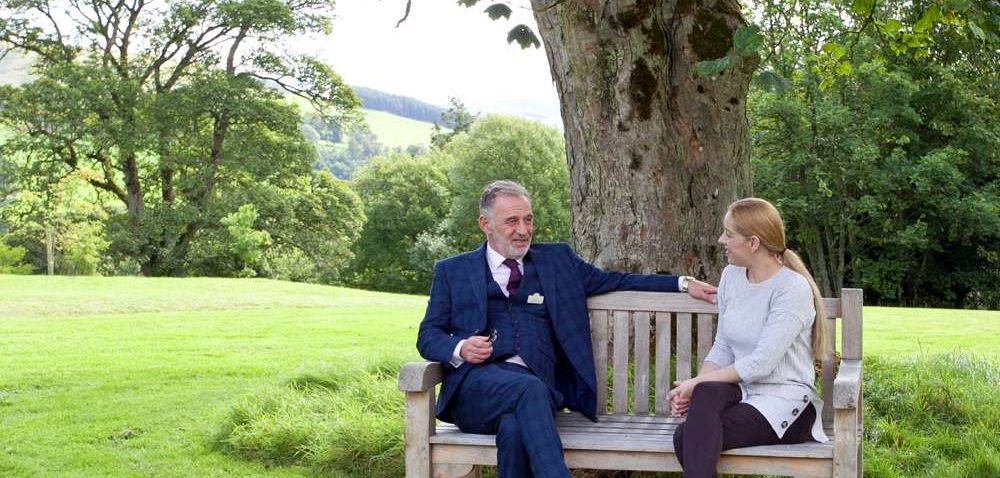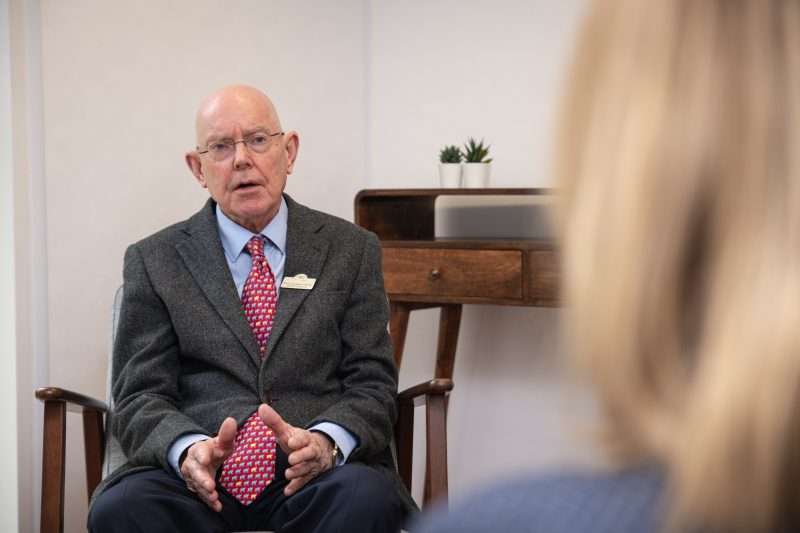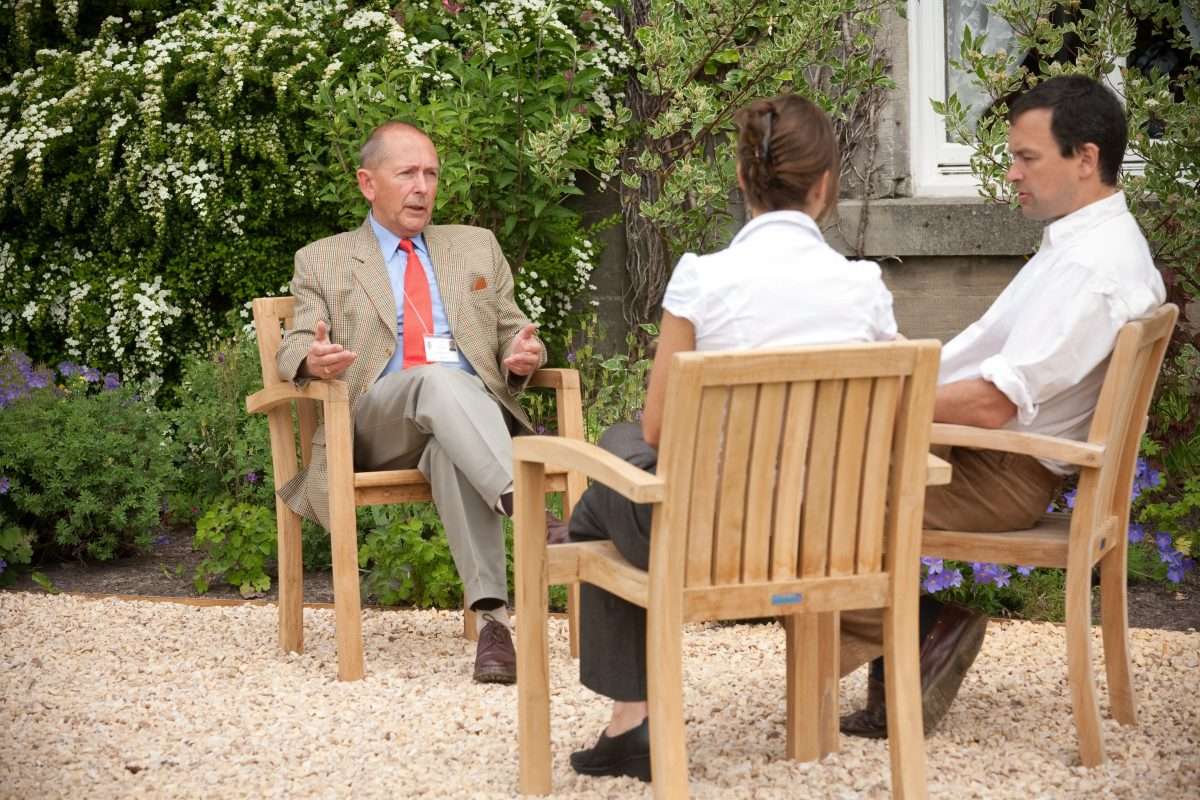
Compassionate Insight into BPD and Alcoholism
Borderline personality disorder (BPD) is a highly complex, stigmatised, and often misunderstood mental illness. So is alcoholism. Either one can make life very difficult for a person. Having both makes for an even bigger problem. Sadly, the rate of comorbidity between BPD and addiction, especially to alcohol, is extremely high. About half of those diagnosed with Borderline Personality Disorder meet the criteria for substance misuse or alcohol misuse disorder. BPD has one of the highest rates of dual diagnosis with alcoholism among all psychological illnesses.
Rehab Costs & Options for
When a person has both BPD and alcoholism, diagnosis can be very difficult, mainly because both BPD and alcoholism share many common symptoms. This is known as a dual diagnosis. Both illnesses can be dangerous if left untreated, and treatment for either one is not an easy task. Treatment, when both are involved, can quickly become even more complicated, but that is also when it becomes most necessary.

Download Our Brochure
What Is Borderline Personality Disorder?
Borderline personality disorder, also known as an emotionally unstable personality disorder (EUPD) is a mental illness characterised by fear of abandonment, rapidly changing moods, impulsive behaviour, and poor sense of self-identity. The term “borderline” refers to the fact that the symptoms border both psychotic and neurotic behaviour.
It is estimated that between 1-2% of people in the UK have BPD, but because it is so difficult to diagnose, the numbers could be much higher. BPD falls on a spectrum from mild to severe, depending on what symptoms (and to what extreme) the person has. People with BPD often experience:
- Intense emotions
- “Black and white” thinking
- Going to extreme efforts to avoid abandonment
- Idealisation, attempts, or acts of self-harm and/or suicide
- Weak temper and poor anger management
- Stress-related paranoia or dissociation
- Sensitivity to criticism or rejection
- Chronic feelings of emptiness or depression
- Unstable relationships
The intense emotions they feel are not only their own. If they see someone in pain, they will feel the pain themselves as if it is their own. While this makes it easier for a borderline to connect with others, it also makes them too quick to get attached.
Unfortunately, people with BPD are often seen as childish, manipulative, and attention-seeking because of the way they act. Their rapidly changing moods and switches between love and hate (or “splitting”) can make it seem as if they have different personalities.
For this reason, many people find it difficult to live or deal with someone who has BPD, which makes building relationships hard. Ironically, this only contributes to the fear of abandonment and makes things worse.
These symptoms can appear in early childhood and quickly become overwhelming. Because of this, about 10% of those with BPD end up committing suicide, men more than women.
Borderline personality disorder, also known as an emotionally unstable personality disorder, is a personality disorder and mental illness characterized by a long-term pattern of unstable interpersonal relationships, a distorted sense of self, and intense emotional reactivity.
Those affected by borderline personality disorder often struggle with self-harm due to their difficulty with regulating their emotions and poor mental health. They may also struggle with unstable relationships leading to a feeling of emptiness and fear. If people with BPD or their loved ones do not seek professional medical advice, the disorder can lead to suicide.
What Is Borderline Personality Disorder Like?
Read the words of Scarlett to find out what BPD is like:
“Being borderline is very much like living in black and white. You’re either ecstatically happy or convinced that it’s the end of the world. There is no in-between. Every emotion is constantly on full volume. It very quickly gets to be too much and people always look at me like I’m crazy, even when I’m happy.
The same goes for my thinking. Like with my boyfriend. If all’s going well, I’m head-over-heels in love and planning to spend the rest of my life with him. And if he comes home and is in a sombre mood, I’m convinced he’s mad at me and going to break up. I realise what I’m thinking and why and that it sounds stupid, but there is no logical explanation in the world that will get me to calm down. Therapy doesn’t help.
“Most of the time, I don’t feel happy with life and I get frustrated very easily”
So I often push people away as a precaution or keep my distance from the start, which means my social life is nonexistent. And it’s hard to make friends because I have little interest unless I’m obsessed with something, which is always short-lived. I’m literally always bored. I’ve been told this is because I have no self-identity. I don’t know who I am, so I don’t know what I enjoy.
Most of the time, I don’t feel happy with life and I get frustrated really easily. I hate when I’m depressed and people say, ‘Go and hang out with your friends or do something you enjoy!’ And I’m thinking, what friends and what do I enjoy? I’ve never been able to explain to anyone how I feel, which is so frustrating. If anything, people say I just want attention. I guess that’s partly true but it’s much more than that. I want someone to care. That’s something I’ve never had and don’t think I ever will.” – Scarlett
Does any of this sound familiar? Many people who abuse alcohol can probably relate to this description of BPD and the issues it causes.

Alcoholism and Borderline Personality Disorder
Due to extreme emotional changes, constant fear, anxiety, and depression, it is also not unusual for someone with BPD to engage in self-harming behaviour. In addition to acts such as cutting, this includes drugs and alcohol, which are both used as ways to escape or bury intense feelings.
Because borderlines are highly impulsive, alcohol or drug misuse is very dangerous for them. It can quickly lead to addiction. In fact, some professionals even say that a person with BPD has an “addictive personality”.

Why Is Alcohol Misuse So Common in BPD?
Alcohol is the most common form of self-medication for borderline people because it seems like a cure-all. Some think it helps ease intense emotions or pain, some see it as a social aid, and others find it as a source of entertainment, especially when they’re alone.
People with BPD have also been shown to have more cravings for alcohol than people without BPD. This may be because alcohol stimulates the endogenous opioid system (EOS), which is often under-stimulated in those with BPD. Cocaine and opioids act similarly on EOS, and coincidentally, are also the other two most commonly misused drugs among borderlines.
Alcoholism Symptoms in People With Borderline Personality Disorder
If you compare the symptoms of BPD with signs of addiction to alcoholism, you will spot a lot of similarities. This is why it can be difficult to diagnose whether a person has one or both illnesses. Some of the many aspects BPD and alcoholism share are:
-
Unhealthy Coping
Alcoholics tend to use alcohol as a coping mechanism. Be it stress, day-to-day problems, or other emotions. So do people with BPD. Borderlines are also likely to use alcohol regularly and in excessive amounts, often a warning sign of alcoholism.
-
Unstable Behaviour
Alcohol, especially with chronic or long-term use, alters brain function, so it can cause mood swings and angry outbursts, often seen with BPD. Alcohol can also affect memory and concentration, both of which are common for borderlines in times of stress or dissociation.
Borderlines are already impulsive and have a high risk of self-harming behaviour. Alcohol makes people lose their inhibitions just the same and increases the risk of suicide. Combined, the two make things worse. Alcohol abuse can easily push a person over the edge, especially if they’re already close to it.
While alcohol often feels like a cure for symptoms of depression and anxiety, it actually worsens both over time. Regards to BPD can exaggerate all symptoms, which are probably not mild, to begin with.
-
Dysfunctional Lifestyle
Alcoholism can lead to neglect in self-care, relationships, work, and finances. Something that many people with BPD have to deal with even if they’re sober. A person with alcoholism may be missing out on responsibilities due to drinking or a hangover, while a person with BPD may do so because they believe socialising leads to them being hurt.
To cover up these faults, alcoholics may lie about their use or act in a manipulative way. This is something borderline people are often accused of and may do subconsciously as a means of preventing abandonment.
-
Codependent Relationships
Borderlines can get easily attached to a person and have a hard time letting go of a relationship, even if it gets violent. It is also not uncommon for someone with BPD to end up with someone with harmful narcissistic traits. Those people tend to exhibit the exact characteristics the borderline yearns for. They appear caring, but they end up controlling or abusive. But due to fear of abandonment, it is not easy to leave, even if things get bad.
Likewise, alcoholics, especially women, tend to end up in codependent relationships, especially if their partner is an alcoholic too.
Learn how to spot a codependent relationship, and what steps you can take to get out of one.
-
A Traumatic Past
The causes behind BPD are unclear but are believed to be a mix of genetic predisposition and how the person was raised, with childhood trauma playing a significant part.
With alcoholism, there is also usually some sort of underlying issue, not necessarily a disorder, but some reason for why a person turns to alcohol.

The Difficulty in Diagnosis of BPD and Alcoholism
BPD is very difficult to diagnose. It can take years to be identified as a borderline because the disease is so complicated and even medical professionals often have a poor understanding of it. Professionals also believe there is a lot of under-diagnosis, overdiagnosis, and misdiagnosis when it comes to BPD.
It is even more difficult when substance misuse is involved. For example, someone can be mistaken for a borderline when they simply have an alcohol use disorder or vice versa. It is also not uncommon for a person to get underdiagnosed with only one illness when in reality, they have a bigger problem.
It’s not just substance addiction. BPD is sometimes confused with post-traumatic stress disorder (PTSD), and medical professionals often see BPD as a combination of many psychiatric illnesses because nearly all symptoms tend to overlap with something else.

How Do I Know if It’s BPD?
It is not advised to self-diagnose when it comes to BPD, but if you have exhibited a majority of BPD symptoms over many years, you should consult a professional. Even so, you shouldn’t expect a “yes” or “no” immediately. BPD takes time to identify.
If the symptoms have only shown up or become more prominent after you have started using alcohol (even in moderation), it may be not BPD at all. Taking a break from alcohol to test a theory wouldn’t necessarily provide any insight either. However, if you have trouble quitting drinking, you may have alcoholism.
People with BPD who have become sober often report an alleviation of their symptoms. However, the borderline side doesn’t disappear completely.

Treatment for Borderline Personality Disorder
Treatment for BPD is a complex topic. First, those with BPD require special care, which may not always be available. Patients seeking treatment report having difficulty finding the right professional, as not all are knowledgeable about BPD and many don’t want to deal with BPD patients altogether.People with BPD can also be difficult to work with. They are hard to convince that they need help and are reluctant to seek it themselves. They are also more likely to drop out of treatment, especially if things get unpleasant.
The standard course of treatment for BPD is therapy, either CBT (cognitive behavioural therapy) or more preferably DBT (dialectical behavioural therapy). DBT is essentially CBT designed for BPD patients and has been proven to be more helpful in reducing self-harming behaviours.
There is no medication available for BPD, although sometimes it is prescribed to alleviate, but not treat, certain symptoms.
If symptoms get too severe, it is possible to be hospitalised, either voluntarily or not. Inpatient treatment is recommended for those at a high risk of suicide or harm to someone else.
Hospitalisation may sound severe but it isn’t unusual for a person with BPD to request voluntary admission. They may also go for other reasons too, such as addiction. When more than one condition is involved, inpatient treatment is often found to be helpful because it is more intense.
Real-Life Experience With Borderline Personality Disorder and Alcohol
“I found out I had Borderline Personality Disorder when I was a teenager. The year after, I had my first drink and I realised how calm and relaxed I felt. I was finally able to socialise without the constant second-guessing and rapid emotional cycling!
Taylor
I drank a lot to replicate that feeling until I turned 18. Then, I was drinking any time anything felt “bad”, and with BPD, that was very frequent. I moved in with my alcoholic boyfriend and we ended up wrecking our lives. Lost everything. Our relationship turned abusive.
So I left and went to an inpatient rehab centre for 45 days. I haven’t had a drink since. They helped me work through a lot of trauma, gave me a sense of community, and helped me find long-term professionals to help with my BPD. That was five years ago and I haven’t gone back to drinking.”
Treatment for Borderline Personality Disorder can take years or decades, and for some people, it will remain a life-long illness requiring life-long attention. However, therapy does help alleviate many symptoms, and is recommended, no matter the severity.

Rehab Options for Borderline Personality Disorder
Alcoholism, depending on the degree, may be dealt with via self-regulated treatment, or it might need medically supervised inpatient care. A typical residential alcoholism programme includes a period of detox, psychotherapy, and aftercare. When it comes to dual diagnosis, however, attendance at an inpatient rehab with a Consultant Psychiatrist on the team is highly recommended.
Residential rehabs are usually not secure units and so may not suit someone with severe BPD.
Because alcoholism and BPD combined exaggerate one another besides being potentially lethal on their own, finding proper treatment is crucial. In addition, people with any dual diagnosis are more prone to relapse.
When it comes to addiction and any co-occurring psychological disorder, it is always advised to treat both at the same time. This can be done much more efficiently at a residential rehab centre. Many outpatient facilities are unable to provide the intensity of care that an inpatient facility can.
At Castle Craig Hospital, all aspects of a patient’s diagnosis will be addressed and relapse prevention will be an important part of the programme.
No two persons with a dual diagnosis should be treated the same. This is because every person has their unique situation. Every patient at Castle Craig is carefully evaluated and given a personalised treatment plan to make sure that all their well-being needs are met.
One of the main benefits of inpatient rehab clinics is that they allow a person to escape their normal environment, which can be helpful if that environment is toxic or triggering in any way. Inpatient facilities and group therapy also provide a sense of belonging, which someone struggling socially will appreciate.


Therapy for Borderline Personality Disorder and Alcoholism
In regards to therapy, Castle Craig offers both Cognitive Behavioural Therapy (CBT) and Dialectical Behavioural Therapy (DBT). We have both group and individual therapies, along with a number of complementary therapies. We also have specialised groups, such as for women, or those with traumatic experiences.
Castle Craig also strongly focuses on continuing care, which is necessary for someone with both alcoholism and BPD, both of which are considered life-long illnesses. We also offer extended care programmes, which can be important for certain patients.
Whether you’re struggling with alcohol misuse or another addiction, it is important to get help as soon as you realise you have a problem. If you suspect that you have an underlying psychological issue, such as Borderline Personality Disorder, it is even more critical to do so.
Experiences of Borderline Personality Disorder and Alcoholism
Lara, Lucas, and Vanessa, all diagnosed with BPD, share why they use alcohol and other substances to self-medicate:
“For me, alcohol balances out the worst of my symptoms of BPD, it helps me relax, not overshare and usually balances out my rage. I think I enjoy the happy buzz a bit too much.
With a family history of alcoholics, I have always been more careful with alcohol than is probably necessary. I have also been alcohol-free since last October simply because I do not want to develop a problem.
In addition to this however I also have a problem with overeating, and I am currently attending Overeaters Anonymous, which works through the same book and materials as Alcoholics Anonymous.”
-Lara
“I don’t know if I’m an alcoholic, but I definitely over-drank when I was younger. These days, I’m on antidepressants, and I self-medicate with weed and alcohol. I use alcohol to enhance the effects of the weed. I prefer something with high proof. Sometimes I’ll have the antidepressants along with it. And hopefully, I will have achieved a state of mind where I am blissfully ignorant of all my problems!”
Lucas
“I feel like I have to drink to be normal and fit in. It helps me open up and blend in with the rest of society and slows my overthinking. Keeps me from internalising things. But it also backfires.
-Vanessa
Drinking too much at home has led to severe acts of self-harm for attention and put me in the hospital. Things I would like to think wouldn’t have happened if I wasn’t so screwed up. I drink nearly every night and binge drink all day and night on the weekends. It doesn’t interfere with my work life, thank God, but it’s still a lot of alcohol.”

Castle Craig Has Helped Over 10,000 People, We Are Always Here to Provide Advice and Support You.
Next Steps
If you think you might be struggling with a borderline personality disorder or you are a loved one noticing splitting behaviours in a relative or friend, we are here to help. Feel free to call us for a no-obligation chat about treatment for BPD.
Experts You Can Trust
With a wealth of knowledge and services to help you regain control of your life, request a call-back from one of our professionals today. The choice you make today could change your life forever.